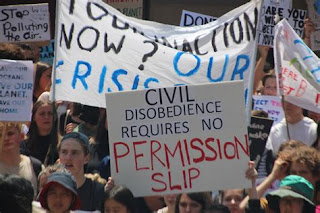Matthew K. Wynia
The New England Journal of Medicine
September 15, 2022, 387:959-961
Here are two excerpts:
The AMA called Dobbs “an egregious allowance of government intrusion into the medical examination room, a direct attack on the practice of medicine and the patient–physician relationship, and a brazen violation of patients’ rights to evidence-based reproductive health services.” The American Academy of Family Physicians wrote that the decision “negatively impacts our practices and our patients by undermining the patient–physician relationship and potentially criminalizing evidence-based medical care.” The American College of Physicians stated, “A patient’s decision about whether to continue a pregnancy should be a private decision made in consultation with a physician or other health care professional, without interference from the government.” And the CEO of the American College of Obstetricians and Gynecologists called Dobbs “tragic” for patients, “the boldest act of legislative interference that we have seen in this country,” and “an affront to all that drew my colleagues and me into medicine.”
Medical organizations are rarely so united. Yet even many physicians who oppose abortion recognize that medically nuanced decisions are best left in the hands of individual patients and their physicians — not state lawmakers. Abortion bans are already pushing physicians in some states to wait until patients become critically ill before intervening in cases of ectopic pregnancy or septic miscarriage, among other problems.
Beyond issuing strongly worded statements, what actions should medical organizations take in the face of laws that threaten patients’ well-being? Should they support establishing committees to decide when a pregnant person’s life is in sufficient danger to warrant an abortion? Should they advocate for allowing patients to travel elsewhere for care? Or should they encourage their members to provide evidence-based medical care, even if doing so means accepting — en masse — fines, suspensions of licensure, and potential imprisonment? How long could a dangerous state law survive if the medical profession, as a whole, refused to be intimidated into harming patients, even if such a refusal meant that many physicians might go to jail?
(cut)
Proposing professional civil disobedience of state laws prohibiting abortion might seem naive. Historically, physicians have rarely been radical, and most have conformed with bad laws and policies, even horrific ones — such as those authorizing forced-sterilization programs in the United States and Nazi Germany, the use of psychiatric hospitals as political prisons in the Soviet Union, and police brutality under apartheid in South Africa. Too often, organized medicine has failed to fulfill its duty to protect patients when doing so required acting against state authority. Although there are many examples of courageous individual physicians defying unjust laws or regulations, examples of open support for these physicians by their professional associations — such as the AMA’s offer to support physicians who refused to be involved in “enhanced” interrogations (i.e., torture) during the Iraq War — are uncommon. And profession-wide civil disobedience — such as Dutch physicians choosing to collectively turn in their licenses rather than practice under Nazi rule — is rare.
